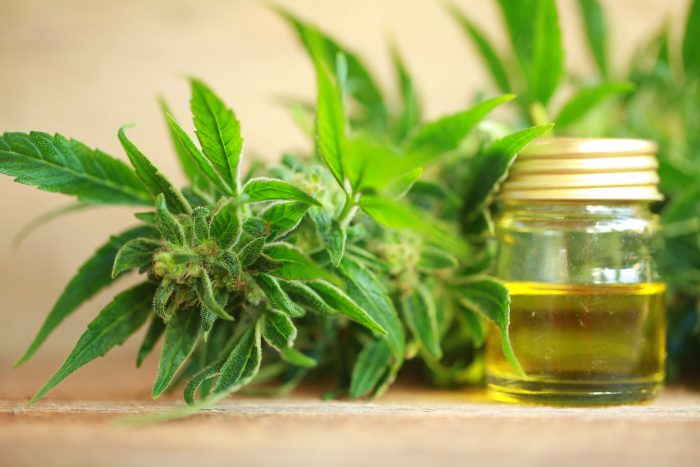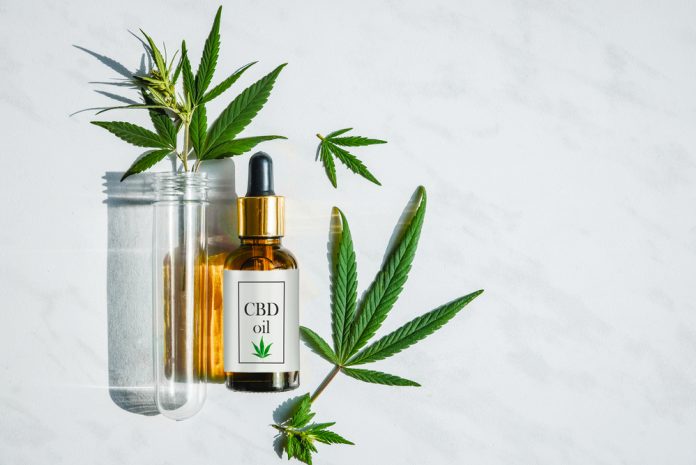By now you’ve undoubtedly heard quite a bit of the buzz around CBD-infused products or have seen them being sold in Walgreens, CVS, or GNCs.
From edible CBD candies and nutritional supplements to topical CBD lotions, creams, and salves, to CBD vaping cartridges, it’s literally everywhere. Heck, there are even CBD snacks for cats and dogs!
With the industry in its nascent stages and with you being an aspiring entrepreneur, you’re wondering how you can get in on the CBD craze. It’s pretty easy to see that there are lots of great opportunities right now to carve out a niche in the booming CBD field. But first you need to educate yourself: what exactly is CBD, and how can it fit into your business plan?
CBD: The What and the Why
First off, CBD is shorthand for cannabidiol, one of more than a hundred cannabinoids found in the cannabis plant. Cannabinoids like CBD interact with the body’s endocannabinoid system. All vertebrate species, from humans to dogs to birds to fish, have an endocannabinoid system that’s responsible for promoting homeostasis, or biological harmony in the body. Cannabinoid receptors are found throughout our body, and can influence our perception of pain, mood, appetite, sleep, stress, memory, metabolism, and other functions.
Let’s talk briefly about what CBD is not, which is psychoactive. When many people hear “cannabis,” they think of marijuana, a member of the cannabis family that’s high in THC, another cannabinoid responsible for producing an altered state of mind when eaten or smoked. Most CBD products, on the other hand, are derived from hemp, another plant from the cannabis family that produces very little, if any, of the psychoactive cannabinoid THC.
So, CBD isn’t used because it makes people feel high. Instead, there are a host of potential benefits of CBD use including enhanced mood and reduced anxiety, improving sleep patterns and general restfulness, and chronic pain resulting from arthritis or neuropathy. Right now the only completed clinical trial involving CBD is for one specific medication used to control seizures in patients with epilepsy, but dozens of other studies into its efficacy are ongoing.
Let’s Talk About the Legality of CBD
Hold on, you might be thinking, aren’t cannabis products illegal in the United States? The answer here is a bit murky.
First, marijuana and products that contain significant amounts of THC are still considered a Schedule 1 drug by the federal government. That is, the Drug Enforcement Administration does not recognize any legal use for these products, and believes they have a high potential for abuse. Many states have passed their own laws contradicting these statements, but we’re going to stay away from that debate here. What we will note is that the DEA continues to classify CBD under Schedule 1, with the exception of CBD found in the aforementioned epilepsy medication.
But, and this is a rather big “but,” the 2018 Farm Bill passed by Congress legalized the cultivation of hemp containing CBD, so long as the harvested plants contain less than 0.3% THC by weight. Any CBD products derived from this legal hemp, then, would be permissible under the guidelines of Congress. Another federal agency, the Food and Drug Administration, is still considering where it stands on CBD, but because there’s only one product that’s been specifically approved as a medicine, other CBD products cannot be advertised or represented as having health benefits.
Of course, many states have weighed in on the issue as well. Colorado, among the most permissive, has legalized any component of the hemp plant for use as a food product. Texas, meanwhile, maintains that any cannabis product that contains even a trace amount of THC remains illegal. You’ll definitely want to check your local laws before deciding whether a CBD business is right for your location.

Let’s Talk Product
If you’re still interested in CBD and it doesn’t appear local regulations will prove too burdensome, you’re not alone. Millions of consumers across the country are turning to CBD products every day. Today you can find CBD in almost anything you would normally consume, rub, feed your pet, or even bathe in.
When we say the CBD business is booming, we’re serious. According to recent estimates, the CBD market is expected to generate $1.8 billion in sales by 2022, nearly a fourfold increase from $500 million in sales a year ago.
Do you already have a niche? There are plenty of places adding a CBD line could boost your bottom line:
- Pet care specialists like Honest Paws are stocking CBD supplements to soothe the nerves of pets who may be hyperactive or anxious when separated from their owners
- Health and wellness practitioners are increasingly recommending CBD to soothe aches or help their clients improve sleep quality and duration
- Beauty shops are finding an increased demand for CBD-infused creams, bath bombs, and other products
- Massage therapists and spa owners can offer upgraded treatments using organic, vegan-friendly CBD products
Whatever your industry, if you have health-conscious customers looking for the latest trend in self-care and personal wellness, chances are you’ve got a great base from which to build a lucrative CBD-based business. You can even begin by enrolling in a cbd affiliate program, where you will be rewarded for any new customers you refer — customers who can eventually also be yours.
Getting Started
There are plenty of opportunities to add CBD to your existing small business, sure. But what if you’re just getting started? Consider an online store as an easy, low-cost way to reach potential customers both within and well beyond your local market.
First, you’re going to have to source your product, so start by researching wholesale CBD suppliers online. You may have a specific niche you’re looking to target like beauty or pets, or you might decide to try to reach as broad a base of CBD customers as possible. Whatever you decide, look for a supplier with a range of products from different manufacturers at a variety of price points. If you’re starting from square one, you don’t want to have to try to establish too many different vendor relationships at once to stock up your store — many will have minimum order quantities that will be hard to meet if you agree to buy from multiple wholesale partners while you’re just getting started.
Also consider whether you want to drop ship or sell direct. Drop shipping means you don’t actually have to have products on hand in inventory and your wholesale partner will ship direct to the consumer. That sounds great — no inventory costs, no work in packaging and shipping. But there are drawbacks to consider: you don’t control how or when a product ships, you don’t get to brand your merchandise or include any promotional inserts in your mailers, and if your partner drops the ball by delaying shipping or sending the wrong or defective products, your customer is going to blame you.
Get Online
Next, you’ll want to set up a website. There are plenty of services that will help you register a domain name, but tools to build your site are going to be even more important.
Companies like Shopify and Squarespace are well-known providers of e-commerce websites that are beginner-friendly, which is immensely helpful if you’re a first-time entrepreneur. Take some time comparing the benefits of different platforms: who’s got the easiest store to set up? Where can you get the best deal on credit card processing fees? How hard is it to change the site if you decide to expand or switch gears to a new product line?
Once your site is online, you’re going to have to promote it. There are literally libraries full of books on marketing schemes, and a lot of how you market and to whom will depend on your own personality and drive. But whether it’s through word of mouth, flyers all over town, Facebook posts, Google ads, or something else, you’re going to have to market your tail off. Once you get a few sales under your belt and positive reviews start flowing in, however, it’ll all be worth it.
Conclusion
Let’s wrap up by driving the main point home one more time: CBD is an industry poised for massive growth. It’s garnering tons of free media attention and hype and consumer interest is growing every day. With sales expected to nearly quadruple over the next few years, right now is a great time to get in on the ground floor.
Whether you’re an experienced entrepreneur or just getting ready to start your first small business, you’d be doing yourself a disservice to not consider the massive opportunities CBD presents to make more money starting right now.
Find a Home-Based Business to Start-Up >>> Hundreds of Business Listings.

















































